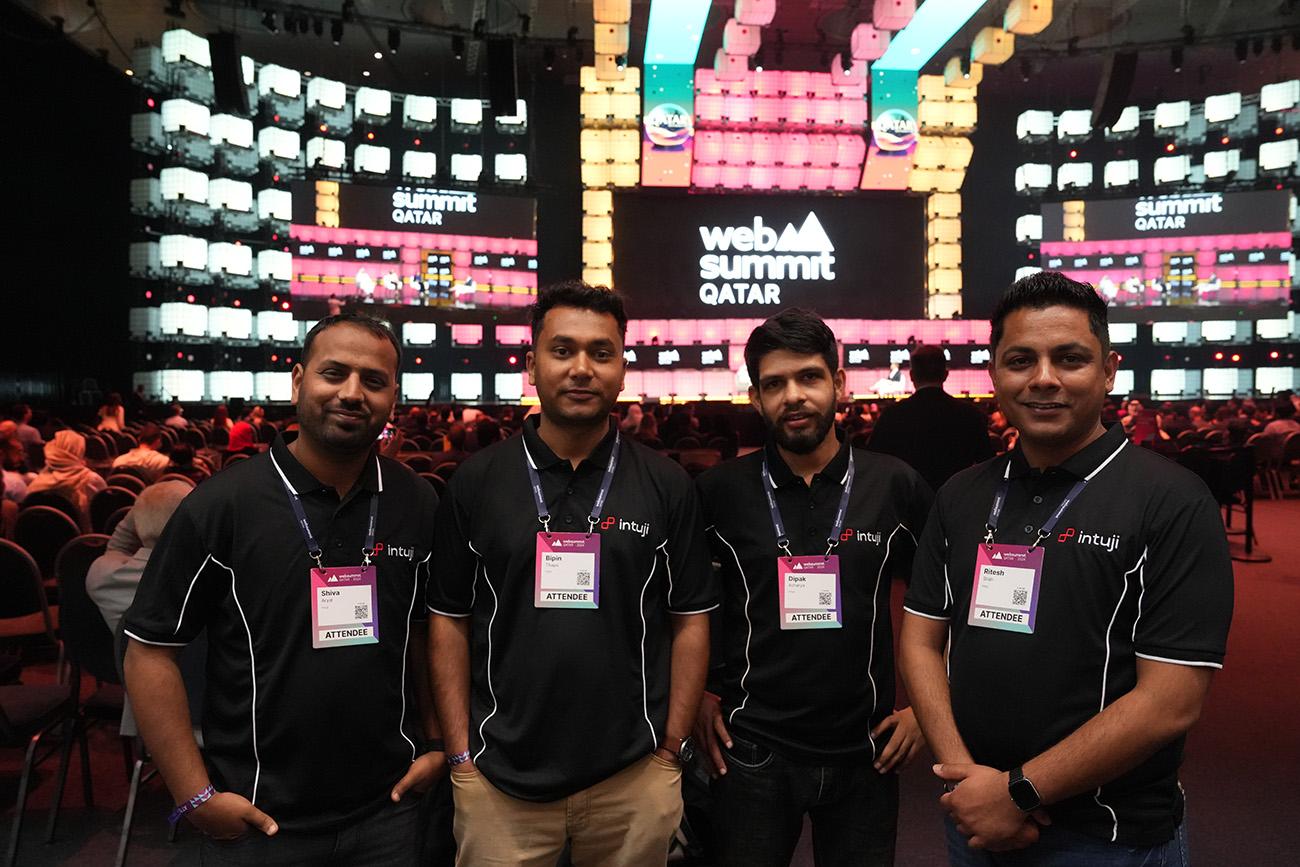
What Is DigitalOcean & What Can It Do For Your Business? (+Free $200 Credit To Get You Started)
Julian Wallis
16 min read

What Is DigitalOcean? 🌊

At its core, DigitalOcean is a cloud computing platform that allows users to rent virtual servers, or “droplets,” for hosting websites, applications, and data. It’s similar to other cloud computing platforms like Amazon Web Services (AWS) and Microsoft Azure, but it’s generally considered to be more user-friendly and cost-effective.
In January 2018, DigitalOcean achieved the title of being the third largest cloud hosting company in the world when it comes to web-facing computers. Based in New York, their data centres are prevalent worldwide and provide seamless cloud services 24×7.
One thing that sets the platform apart is its user-friendly control panel, which makes it easy to manage your droplets and other resources. You can choose from various operating systems, including Linux and Windows, and you can scale your resources up or down as needed to meet your application’s demands.
In addition to its core hosting offerings, the platform offers a range of storage options, including object storage, block storage, and file storage. This can be used to store and manage data for a wide range of applications, helping businesses streamline their operations and improve efficiency.
Likewise, it focuses on performance and reliability. The platform is designed to handle traffic spikes and other challenges that can impact the performance of your application. And with a network optimised for low latency and high throughput, you can expect fast, reliable performance for your users.
What’s more, DigitalOcean also strongly focuses on security, with measures in place to protect against cybersecurity threats such as DDoS attacks, malware, and unauthorised access. This can give businesses peace of mind that their data and applications are secure.
A Brief History Of DigitalOcean ⏳
DigitalOcean came into being back in 2011. However, its history of formation is quite long. In 2003, Ben and Moisey Uretsky, co-founders of the platform, had already formed a company called Server Stack. But they wanted to fill the void in the cloud computing industry.
During that time, most cloud computing solutions were targeting corporate clients only. They only focused on large-scale developments and didn’t really cater to small to midsize companies. Because of this, Ben and Moisey founded DigitalOcean, a company that provides cloud-hosting and server-provisioning services to everyone, from individual developers to enterprise-level organisations.
By mid-2012, they had a stronghold in the market, and thus, they were able to sign up more than 400 customers and provided over 10,000 instances of cloud servers. It also became the first company to provide SSD-based virtual machines in 2013.
As of now, the company is under the leadership of the former CEO of Citrix, Mark Templeton, who took over from Ben Uretsky in April 2016. DigitalOcean is now worth $2.46 billion as of January 2023.

What Can DigitalOcean Do For Your Business? 🤑
So now that we know what DigitalOcean is, let’s take a look at how it can help drive business growth. The platform is a popular choice for businesses looking to grow because of its simplicity, speed, and robust features.
Before that, let’s understand a bit about what “droplets” really are. This terminology is frequently used and associated with everything related to DigitalOcean’s infrastructure, but what does it mean?
💦 What Are Droplets?
Droplets in DigitalOcean are virtual machines that operate on a cloud platform, enabling users to quickly spin up a server. They are designed to meet the needs of individual developers, SMBs and enterprises alike, allowing for easy deployment of applications and services.
Droplets provide a fast and convenient way to create customisable Linux-based virtual machines, each with its own allocated resources such as RAM, CPU and disk space. This allows for greater control over how resources are used within the server, allowing users to create environments tailored to their specific needs. In addition, all droplets come with optional features such as one-click backups and snapshots, giving users greater control over their data.
DigitalOcean offers three distinct types of droplet plans:
- Standard Droplets for low-intensity computing requirements,
- General Purpose Performance Droplets for mainstream production workloads that require predictable compute performance, and
- CPU Optimised Performance Droplets for CPU-intensive tasks or projects that rely heavily on CPU power rather than RAM or I/O.
Each plan has its own set of benefits and drawbacks, so it’s essential to choose the best one based on your use case.
The primary advantage of DigitalOcean’s droplet solutions is scalability. As demands change or increase, additional resources can be easily added or removed from existing infrastructures, eliminating unnecessary waste. For example, if you need more storage space, you can simply increase the size of your droplet without having to deploy an entirely new instance.
Featured Products Of DigitalOcean 🛍️
DigitalOcean offers a variety of products that can help businesses grow, including:
- Virtual Private Servers (VPS): These servers can be used to host websites, applications, and databases. They offer a high level of control and flexibility and can be used to scale resources as a business grows.
- Managed Databases: DigitalOcean offers managed databases for popular open-source databases like MySQL, PostgreSQL, and Redis. These databases are easy to set up and manage and can handle large amounts of data.
- Object Storage: The platform’s object storage service, called Spaces, allows businesses to store and retrieve large amounts of data, including images, videos, and backups. They are scalable, fast, and reliable — and just with $5 per month, you get 250GiB of storage with 1TiB of outbound transfer.
- Kubernetes: DigitalOcean’s Kubernetes service allows businesses to easily deploy, scale, and manage containerized applications. You can quickly automate your infrastructure to provision and deploy faster, moving from one monthly deployment to multiple times a day.
- Networking: DigitalOcean offers a variety of networking services, including load balancers, firewalls, and private networking, which can help businesses improve the performance and security of their online presence.
All of these products can help businesses grow by making it easier to manage and scale their online presence as they gain more customers and traffic. They also offer more control and flexibility than other hosting services and allow businesses to customise their infrastructure to meet their specific needs.
Perks Of Choosing DigitalOcean Over Other Service Providers 🏆
Now back to the benefits. In a world full of cloud service providers, why should one choose DigitalOcean’s services?
💁 Simplicity
One of the main benefits of DigitalOcean is its simplicity, which makes it easy for businesses to deploy and manage their infrastructure without getting bogged down in the complexities of cloud hosting. Its minimalist approach means that there are fewer options to choose from, which can be overwhelming for some users.
This simplicity also extends to the pricing model, which is straightforward to understand, with no hidden fees or complex calculations required. This can be a major advantage for businesses that don’t want to waste time and resources trying to understand and manage their cloud hosting environment.

⚡ Speed
Another reason DigitalOcean is good for business growth is its speed. The platform is known for its fast provisioning times, allowing it to spin up new instances in as little as 55 seconds. This makes it easy for businesses to quickly scale up or down as needed without experiencing any delays or downtime. This can be especially important for businesses that need to respond rapidly to changing demand or those with time-sensitive projects.
✨ Features
DigitalOcean also offers robust features that can support a wide range of applications. It has a simple API that developers can use to automate and integrate with other tools and a command-line interface for more hands-on control. It also provides a variety of droplet sizes, so businesses can select the one that best fits their needs. These features make the platform a good choice for businesses that need a reliable platform that can grow with them and support their applications as they expand.
📝 Documentation
DigitalOcean comes with comprehensive documentation. The platform has an extensive library of guides and tutorials that can walk users through complex setups, whether they are deploying version control or starting up a Kubernetes cluster. This makes it easy for businesses to get up and running on DigitalOcean and can help them avoid common pitfalls and mistakes.
The platform also has an active community of users who can provide support and guidance if businesses have questions or encounter issues.
💵 Pricing
In terms of pricing, DigitalOcean is competitive with other cloud providers. It offers an affordable starting price of just $5 per month, which includes 512 MB of RAM, 1 CPU, and 20 GB of SSD storage. This price also includes a bucket of network transfer, which is a “hidden” cost that can add up with other providers. DigitalOcean’s pricing model is transparent and easy to understand, with hourly and monthly pricing options to make it predictable for businesses. This can be a significant advantage for businesses that must budget and plan their spending carefully.
Use our referral link and try out DigitalOcean for yourself today. This way, you claim a $200 credit for free right away to get started!
Thus, DigitalOcean is a good choice for businesses looking to grow because of its simplicity, speed, robust features, and comprehensive documentation. Its affordable pricing and easy-to-use platform make it a solid choice for businesses that want a reliable, scalable solution to support their growth. While it may not be the best fit for larger, more complex environments or for businesses that need support for technologies beyond Linux, it is a good choice for those who want an easy-to-use platform that delivers good performance at an affordable price.
Are There Any Cons Of DigitalOcean? 🙅♀️
Despite being a great platform, there are a few limitations of DigitalOcean that you, as a business owner, should be aware of.
One such disadvantage is that the platform primarily focuses on Linux deployments and does not currently offer support for operating systems like Windows or applications like SAP or Microsoft SQL. This lack of support for certain technologies could be a limitation for some users, particularly enterprises that rely on these types of systems.
Another potential disadvantage is that DigitalOcean is a younger and smaller company compared to other cloud providers like AWS and Azure. While it has a strong presence and a growing user base, it may not have the same level of resources and infrastructure as these larger competitors. This could potentially impact the level of support and service that users receive.
DigitalOcean’s simplicity and focus on developers may not be the best fit for larger, more complex environments. If you need to spin up a large number of instances or need support for a variety of resources like load balancers, databases, and storage options, you may be better served by a provider like AWS or Azure that has a broader range of options and support for different types of instances.
While DigitalOcean has many benefits as a cloud hosting provider, it is not without its limitations. It’s vital for users to carefully consider their needs and requirements before choosing a provider to ensure that they find the best fit for their specific use case.
DigitalOcean Vs AWS & Azure — Which Is Better? 🤔
Let’s start by comparing DigitalOcean, Amazon Web Services (AWS), and Microsoft Azure. These three popular cloud computing platforms offer different types of hosting, storage, and data processing services on the internet. So, which one is best for you? It depends on your needs and requirements.
👨🔧 Services
One key difference between these platforms is the range of services they offer. DigitalOcean primarily focuses on infrastructure as a service (IaaS), such as virtual machines, storage, and networking. AWS and Azure, on the other hand, offer a wider range of services, including IaaS, platform as a service (PaaS), and software as a service (SaaS). This means that AWS and Azure may be a better choice if you’re looking for a more comprehensive solution that includes things like software and developer tools.
💸 Pricing
DigitalOcean is known for its low prices and straightforward billing model, with a pay-as-you-go approach. AWS and Azure have more complex pricing structures, with various pricing tiers and discounts available based on your usage. So, if you’re on a budget, DigitalOcean might be the way to go.
📊 Performance
DigitalOcean is known for its fast and reliable performance, with a network optimised for cloud workloads. AWS and Azure also offer high-performance services, with a range of options for optimising performance based on your needs.
👌 Ease Of Use
DigitalOcean is known for being easy to use, with a simple web-based interface and clear documentation. AWS and Azure also have user-friendly interfaces, but the sheer number of services and options can make them more complex to navigate. So, if you’re new to cloud computing, you might find DigitalOcean a bit more approachable.
That being said, DigitalOcean is an excellent choice for users who are looking for a simple and affordable solution for hosting and storing data. AWS and Azure are more comprehensive platforms offering a wider range of services, but they may be more expensive and complex. So, it comes down to your specific needs and requirements.

How To Get Started With DigitalOcean ▶️
Getting started with DigitalOcean is easy. Here are the steps your IT team can take to get started:
- Sign up for an account: Create a DigitalOcean account by entering your company’s email address and adding a password. Use our referral link to claim a $200 credit to get started.
- Verify your email address: You will receive an email from DigitalOcean asking you to verify your email address. Click the link in the email to verify your account.
- Choose a plan: Once you have verified your account, you can choose a plan that best suits your needs. DigitalOcean offers a variety of plans, including shared hosting, virtual private servers, and managed databases.
- Create a Droplet: A droplet is a virtual machine you can use to run your website or application. Once you’ve chosen a plan, you can create a droplet by selecting the operating system and size you want to use.
- Connect to your Droplet: Once your droplet is created, you can connect to it using SSH. You will receive an email with the login credentials for your droplet.
- Install the software and deploy your application: Once you are connected to your droplet, you can install any necessary software and deploy your application.
- Manage and monitor your resources: DigitalOcean has a web-based control panel that allows you to manage and monitor your droplets, databases, and other resources. You can use this control panel to monitor the performance of your application, scale your resources, and take backups.
With this, you will be able to get started with DigitalOcean and have your website or application up and running on a virtual machine in no time.
Besides, the platform provides comprehensive documentation to help users get started with their platform, including a variety of guides and tutorials that can walk you through the process of creating and configuring your droplets. They also have an active community of users who can provide support and guidance if you have any questions or encounter any issues.
What Does The Future Hold For DigitalOcean? 🔮
It is difficult to predict the exact future of DigitalOcean, as it will depend on factors such as market trends, technological developments, and the company’s strategy and decisions. However, based on its history and current position in the market, it is likely that the platform will continue to grow and evolve as a cloud hosting provider.
One potential direction for DigitalOcean’s future is an expansion of its services and offerings. The company has already diversified its product line beyond virtual private servers (VPS) to include other products like managed databases and object storage. DigitalOcean may continue to add new products and features to its platform to meet the evolving needs of its users.
Another potential development for DigitalOcean is an increase in its global presence and reach. The company already has a strong presence in multiple countries, with its 14 data centres worldwide. It is possible that DigitalOcean will continue to expand its infrastructure and establish a stronger foothold in new regions as it grows.
DigitalOcean may also continue to focus on its commitment to simplicity and ease of use. The company has built its reputation on being a user-friendly platform that is easy to use and navigate, even for those who are new to cloud hosting. The platform will likely continue prioritising this aspect of its service as it evolves and grows.
The future for DigitalOcean looks bright, as the company has established itself as a strong player in the cloud hosting market and has a loyal user base. While it is impossible to predict precisely what the future holds, DigitalOcean will likely continue to grow and evolve in response to its users’ changing needs and preferences.
Final Words: DigitalOcean & Business Growth 💭
DigitalOcean is a robust platform that offers a wide range of features and tools for developers and businesses. Its focus on performance, reliability, security, and competitive pricing makes it an attractive choice for hosting websites, applications, and data.
DigitalOcean is a popular choice for business growth because of its simplicity, speed, robust features, comprehensive documentation, and affordable pricing. It is well-suited for developers and smaller teams who need a reliable platform that can grow with them, and its active community of users provides support and guidance.
Claim $200 credit for 60 days on sign-up and get started with DigitalOcean today to drive your business growth!
While it may not be the best fit for larger, more complex environments or for users who need support for technologies beyond Linux, it is a solid choice for those who want an easy-to-use platform that delivers good performance at an affordable price. If you want more information about DigitalOcean and all the awesome things you can do with it, feel free to reach out to us for a friendly chat. We’d be glad to answer your questions!
Disclaimer: Keep in mind that we may receive commissions when you click some of our links and make purchases. However, this is no extra cost to you and does not impact our reviews and comparisons. We strive to always do our best to keep things fair and balanced in order to help you make the best choice for you.
Topics
Published On
January 18, 2023

